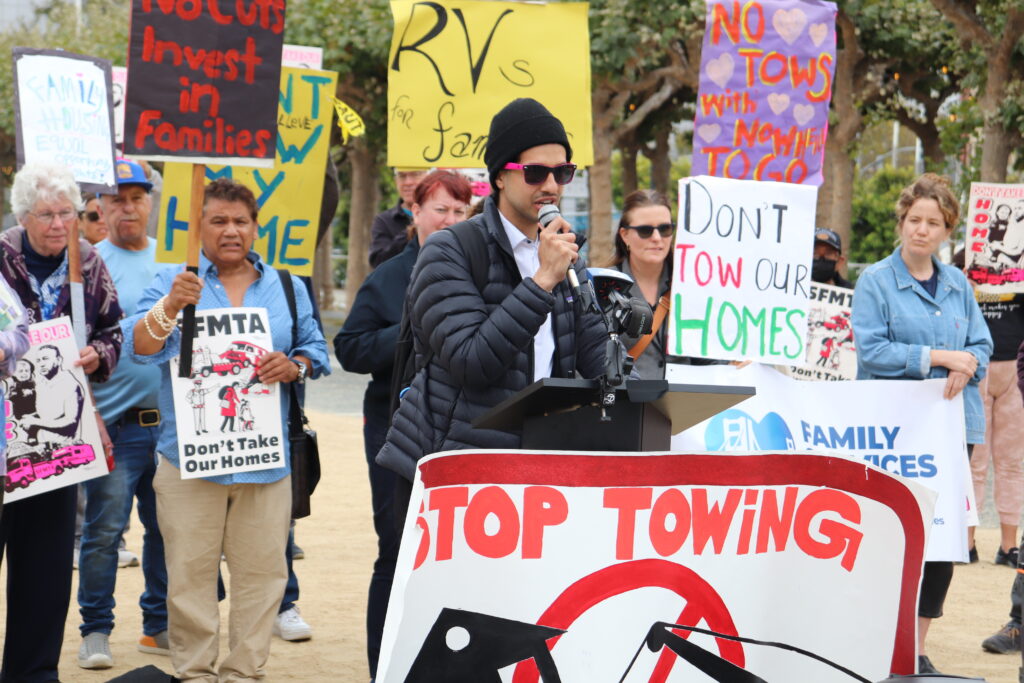by Lukas Illa
“SFMTA don’t take my home,” read the signs of protestors at a September 17 rally put on by the End Poverty Tows Coalition. The rally opposed an upcoming RV ban, which the San Francisco Municipal Transportation Agency (SFMTA) Board of Directors later approved on October 1.
This proposal, drafted by Mayor London Breed’s office and SFMTA, would authorize the agency’s director to designate city streets as off limits to “oversized vehicles” between 12 a.m. to 6 a.m. While the City of San Francisco already bans oversized vehicles—like RVs—from parking overnight on its streets, the proposal would create an enforcement mechanism to tow and impound vehicles that park overnight.
During a contentious mayoral election in which public safety is the leading issue, the City is pointing its proverbial finger at the people experiencing local government’s failures to provide adequate housing referrals. Thus far, elected officials failed to open an additional safe parking site. San Francisco has only one safe parking site— the Bayview Vehicle Triage Center—which holds 35 vehicles, or about one-fifth of its capacity.
For many vehicularly housed residents and homeless advocacy organizations, this proposed ban represents a serious backslide into the criminalization of poverty.
Hope Kamer, director of public policy and external affairs at the anti-homelessness nonprofit Compass Family Services, spoke to the significant and negative impact on families that would come with the proposal’s passage.
“If a child is sleeping in an RV, they are not sleeping on the street,” she said. “If a child is sleeping in a car, they are not sleeping on the street. This decision will push them onto the street.”
The resolution would require the Healthy Street Operations Center (HSOC), the City team charged with conducting “encampment resolution,” or sweeps, to offer those living in oversized vehicles an offer of shelter prior to towing the vehicle.
However, shelter waitlists are long. The waitlist for single-adult shelters is currently 12 days long. The family shelter waitlist has 530 families on it. By carving out available shelter options in order to enforce this proposed ban, the City will force families without shelter or a vehicle to wait longer on the streets.
At the rally, Lucas Chamberlain, a vehicularly housed resident near Lake Merced, said that the City—specifically, District 7 Supervisor Myrna Melgar’s office—failed to deliver on its promise to provide a safe parking site..
“Why did you lie to us?” he said.
The Department of Homelessness and Supportive Housing has $5 million allocated in its budget to erect a safe parking site for oversized vehicles, but Mayor Breed has yet to spend the money. Plans to establish a safe parking site on the west side have stalled, largely due to neighborhood pushback.
For a city that saw a 37% increase in vehicularly housed people in the last two years, with 90% of unsheltered families living in vehicles, San Francisco will soon criminalize the only shelter of its vehicularly housed residents.
But the City still has yet to answer the question plastered on the signs outside City Hall: “Mayor Breed, where do we go?”

This story from Street Sheet’s October 1 print edition has been updated with the SFMTA board’s vote.

